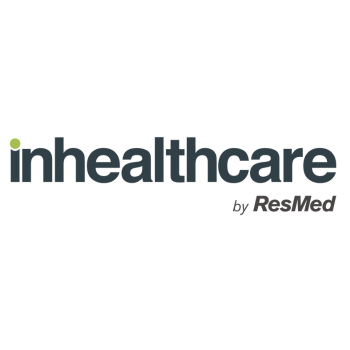Current Landscape
With the expansion of virtual wards, NHS hospitals have successfully avoided a significant number of hospital admissions. Virtual wards allow patients to receive treatment from the comfort of their own homes, thus freeing up hospital beds and alleviating pressure on NHS resources. In 2025, this model of care has become even more important due to the growing demand on NHS services from an aging population and the limited availability of hospital capacity. Virtual wards offer a proactive approach that not only addresses immediate patient needs but also contributes to the NHS's broader goals of improving patient outcomes, reducing hospital congestion, and enhancing care accessibility.
Importance and Timeliness of the Event
The Virtual Wards Conference is critically timed to bring together senior healthcare professionals, policy leaders, and industry stakeholders to address the most pressing challenges and advancements in the sector. As the NHS continues to promote virtual wards as a sustainable healthcare solution, this conference will serve as a key forum for collaboration, knowledge-sharing, and strategy development among NHS peers. In 2025, virtual wards are no longer just an innovation but a necessary element of healthcare delivery. This event offers a vital opportunity to refine and improve virtual ward strategies, enabling NHS leaders to drive meaningful change in patient care and service delivery.
Key Content Streams
- Winter Pressures and Virtual Wards: Virtual wards have shown significant potential in alleviating pressure on the NHS, particularly during challenging winter months when hospital resources are most strained. By enabling patients to receive treatment at home, virtual wards reduce the demand on hospital beds and critical resources. In 2025, this approach has become a strategic tool for building winter resilience within the healthcare system, enhancing the NHS's ability to meet seasonal demands more effectively.
- Same Day Scanning and Point of Care in Virtual Wards: Virtual ward providers continue to enhance hospital-at-home services by ensuring patients needing urgent care can access same-day appointments and receive swift, accurate diagnoses. With advancements in point-of-care testing and imaging, virtual wards now provide more comprehensive support for patients at home. This approach minimises waiting times, reduces infection risks, and promotes faster recovery by facilitating early, accurate, and targeted treatment.
- Staffing and Resourcing: As the NHS faces ongoing staffing shortages, virtual wards present an innovative way to optimise resources and relieve hospital staff workloads. This conference stream will explore how NHS leadership is fostering a collaborative working environment, supporting a well-resourced, experienced team across the hospital-at-home network. By strengthening the capacity and efficiency of virtual wards, the NHS can improve the quality of care while effectively managing limited staffing resources.
- Technology for Virtual Wards: In 2025, wearable health technology has advanced to offer continuous, real-time health monitoring that enables personalised patient care. Virtual wards are increasingly integrating these devices to enhance patient monitoring and care outcomes. This session will cover the importance of digital integration in creating more efficient, technology-enabled virtual wards. The focus will include strategies for protecting patient data, maintaining compliance with data protection regulations, and ensuring secure communication within virtual ward environments.
- Optimising Virtual Wards: With virtual wards firmly established, it is essential to refine their operations to maximise effectiveness. This stream will explore best practices in virtual ward setup, examining lessons learned from past implementations to identify strategies for overcoming common challenges and preventing future issues. The goal is to ensure that virtual wards operate at peak efficiency, delivering reliable, high-quality care to patients.
- Planning and Mapping Virtual Wards: Strategic planning and integration are crucial to the effective implementation of virtual wards. This stream will address the integration of virtual ward systems within the NHS, including the use of existing frameworks and infrastructure. Topics will include connecting virtual wards with electronic health records, clinical decision support systems, and other IT components. The objective is to enable seamless information exchange and coordinated workflows, ensuring virtual wards operate as a cohesive part of the healthcare system.
Why Attend
The Virtual Wards Conference provides a unique platform for healthcare leaders and professionals to actively shape the future of virtual healthcare delivery within the NHS. Attendees will benefit from collaborative discussions, expert-led sessions, and innovative strategies that promote the growth and success of virtual wards. This event is an opportunity to contribute to the advancement of virtual healthcare, enhancing patient care and improving healthcare outcomes across the NHS.
We look forward to welcoming you to this transformative event. Join us in developing a stronger future for healthcare delivery within the NHS, and take part in shaping the next generation of virtual healthcare.
Register now to be a part of this journey and contribute to building a more resilient, effective healthcare system for the future.


















































